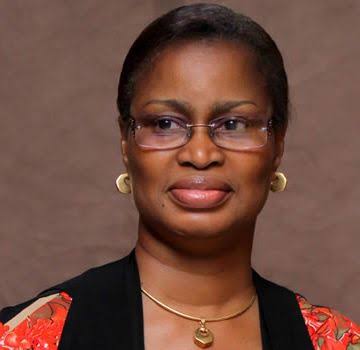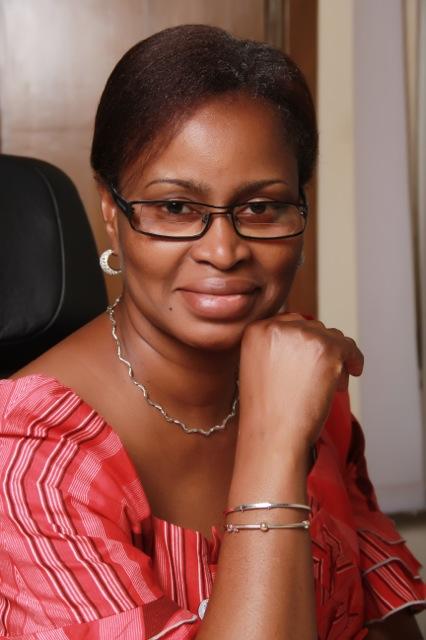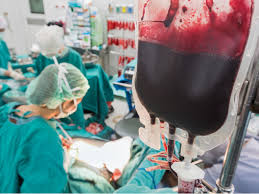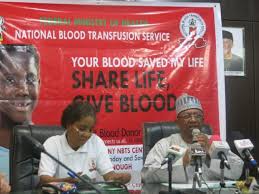World Blood Donor Day: Nigeria needs legal framework for blood safety, says Smith, NBTS Coordinator
Olabisi Deji-Folutile
Dr Oluwatoyin Smith is the National Coordinator, National Blood Transfusion Service. She speaks on Nigerians’ attitude towards blood donation and other issues as the world celebrates the World Blood Donor Day today.
Every year on June 14, countries around the world celebrate the World Blood Donor Day (WBDD). What is the theme for this year’s event?
The theme for this year’s WBDD campaign is“Safe blood saves lives”with the slogan “Give blood and make the world a healthier place’’. The slogan has been adopted to focus on the idea that blood donors give the gift of life and blood donations are needed all over the world to ensure individuals and communities have access to safe and quality-assured blood and blood products.
This annual event provides a unique opportunity each year to thank voluntary blood donors for their gift of life. It also underscores the need for sustained regular donations in order to maintain a large donor pool and adequate stocks of safe, quality blood.
READ ALSO: World Blood Donor Day: Plans underway to include blood transfusion under NHIS
What are the activities in place to mark this year’s World Blood Donor day?
Traditionally, a Ministerial Press Briefing is held in addition to other activities such as blood donation drives by NBTS centres nationwide in collaboration with Blood safety implementing partners to mark the Day. However, in view of the COVID -19 pandemic, and in line with Federal Government’s directives to restrict large gatherings so as to enforce physical distancing measures, most activities are being channeled towards deepening awareness on voluntary blood donation through the conduct of media campaigns via print and social media as well as appreciating our long standing regular donors with gifts, certificates, plaques. NBTS centres now schedule blood donations by appointment.
It has been said that 10 per cent of Nigerians donate blood voluntarily. Has the situation improved? Specifically, what is the percentage of Nigerians that donate blood freely now?
What we know is that voluntary non-remunerated blood donation accounts for approximately 10% of the total blood collections in the Country. This has not changed significantly. Majority of the blood donations (80%) occur in the hospitals and these are mostly from family replacement donors. Moreover, it is difficult to ascertain if the situation has improved or not because there is very little data available to scientifically support it. The question underscores the urgent need for a legislative framework to regulate all blood safety activities in Nigeria. Such legislation would mandate hospitals, blood banks and all other stakeholders in the blood safety field to report on their activities, submit relevant data that can be easily collated, validated and analyzed for effective national planning.
READ ALSO: World Blood Donor Day: NBTS enlists secondary school pupils in voluntary blood donation drive
What are the challenges faced in mobilizing Nigerians to donate blood freely?
Low public awareness, deep cultural myths/ misconception on voluntary blood donation by the general public and eligible groups; Continued insurgency/ security challenges experienced in the North East and North West geo-political zones, which has greatly reduced blood collection activities in the affected zones. We need a sustained public education campaign about the importance of voluntary blood donations in ensuring an adequate supply of safe blood for our communities.
What percentage of Nigerians do we need to commit to voluntary blood donation for the country to have 100 per cent blood sufficiency?
One hundred per cent blood sufficiency will be achieved if only 1 per cent of our country’s adult population commit themselves to voluntary non-remunerated blood donation on a regular basis.
What is Nigeria’s current estimated blood needs per annum?
Nigeria needs about two million blood units per annum representing one per cent of Nigeria’s population of 200 million people.
What do people stand to gain by donating blood regularly and how regular should blood donation be for men and women?
Regular blood donation improves your overall heart health. It lowers the risk of severe cardiovascular events, enhances the production of new blood cells that begin to regenerate within 48 hours of donation. Regular blood donation burns calories, it improves fitness and enhances the feeling of well-being (invigorated & re-energised). It guarantees the donor the opportunity to undertake a free mini-health check. It saves lives and brings joy to many.
Women who are eligible can donate blood three times a year (every 4 months), while men can donate up to four times a year (every 3 months).
What are the steps being taken to ensure sufficient blood availability, quality and safety in Nigeria?
Various steps taken include the mobilization, recruitment and retention of voluntary, non-remunerated blood donors from low-risk population groups nationwide; Screening all donated blood for the 4 WHO mandated transfusion transmissible infections (HIV/AIDS 1 & 2, Hepatitis B& C viruses& Syphilis) using the 4th generation Enzyme Linked Immuno-Sorbent Assay technique; Engagement of hospitals (public & private) through the hospital linkage programme for data collection; establishment of hospital transfusion committees; training of hospital’s blood bank staff on various aspects of blood safety practices; Promoting the rational and appropriate use of blood; maintenance of a system of total quality management at all levels of the Blood service; establishment and maintenance of a reliable data and information support system; and increasing public enlightenment on voluntary blood donation through media campaigns. Safe blood units are then made available for use as needed in hospitals for blood transfusion.
How do you sensitise Nigerians on giving blood more freely?
We sensitise through frequent participation on radio call-in programmes during which we entertain a lot of questions from the listening public and use the opportunity to educate them on blood safety and voluntary blood donation. The electronic and print media have played a big role in our public enlightenment campaign. We have also produced a television documentary on the activities of NBTS. This has been aired on national television a couple of times.We constantly advocate to students and staff of tertiary educational institutions, clerics and congregations of religious bodies as well as workers in public and private sectors.
READ ALSO: Seven reasons why you should donate blood regularly
Is there any plan being made to include blood transfusion under the National Health Insurance Scheme (NHIS)?
Yes, there is. Blood loss is a major cause of maternal deaths globally and Nigeria contributes almost 25 per cent to the global figure. This sad reality emphasises the key role of blood in the provision of essential quality health care in Nigerian communities. The need to formally include blood transfusion in the benefit package of the National Health Insurance Scheme (NHIS) cannot be overemphasized. Plans are underway to work closely with the Honourable Minister of Health and the leadership of the NHIS to make this a reality for Nigerians.
A poor blood donation culture is said to exist in sub-Saharan Africa with several studies showing that this is fuelled by religious, spiritual and superstitious beliefs. How are you changing people’s attitude?
We do this through awareness creation, sustained advocacy, education and public enlightenment campaigns. There are deep rooted cultural myths and misconceptions surrounding blood donation in our environment and we have to continue to reassure people that once blood is screened using sensitive technology such as ours, blood transfusion will be safe. The community Blood Donor mobilisation programme is another successful initiative of the NBTS geared at engaging religious bodies as well as our local communities through their community leaders to become more aware of safe blood transfusion and voluntary blood donation through community sensitisation campaign.
Who can donate blood and at what age?
Any healthy male or female from the age of 18 to 65 years is eligible to donate. Other criteria for eligibility include a body weight of no less than 50 kilograms and a haemoglobin level greater than or equal to 12.5gm/dL. A few conditions exist that would make a prospective donor unable to donate and they include pregnancy, risky lifestyle practices, presence of chronic illnesses and exposure to infections that could be transmitted by blood.
READ ALSO: COVID-19: Nigerian doctors oppose school resumption in Cross River
The NBTS has also developed a strategy referred to as “Catch -them- young” in which we endeavor to imbue the culture of voluntary blood donation through learning in secondary schools. With the support ofthe Federal and State Ministries of Education, we have established blood safety clubs for the senior students in secondary schools who become advocates for voluntary blood donation while in school and eventually commit to donating blood regularly from the age of 18 years.
Do you have an idea of the average number of walk–in voluntary blood donors across the country on a daily basis?
It varies from centre to centre. On the average we have approximately 26 walk-in donors per day at the NBTS centres. This has improved significantly over the years and is a direct consequence of successful media strategies.
READ ALSO: IPPIS: Bayero University sacks contract lecturers
Do you have any story of anyone whose life was saved as a result of blood donation?
Yes. Mrs Elizabeth Ogidan holds the record of being one of the beneficiaries of blood donation from the National Blood Transfusion Service having received up to 27 pints of blood from voluntary blood donors. She suffered postpartum haemorrhage and needed blood to survive. Having exhausted blood donation from family and friends who rushed to donate blood to save her, the NBTS became her last resort and a life saver as multiple units of blood were made available within a short period by voluntary non remunerated donors during the emergency situation. Fortunately, she survived and is now a blood donor advocate, creating awareness and mobilizing community/ rural women for voluntary non-remunerated blood donation.
What is your message for Nigerians afraid of donating their blood and how many times can one donate blood in a year?
I urge Nigerians to ignore myths or misconceptions related to blood donation. There are many benefits associated with regular blood donation and no negative health consequences, once one has been deemed fit to donate. Furthermore, at the NBTS, the blood donation process which takes about 20 to 30 minutes in its entirety, is overseen by a team of highly experienced and committed staff who are there to encourage and support donors throughout the process. Eligible female donors can donate blood three times a year (every 4 months) while males can donate up to four times a year (every 3 months). I therefore urge all of us who are eligible to give blood and make the world a healthier place. Donate blood today voluntarily! You never know, the life you save might be that of a loved one.

























